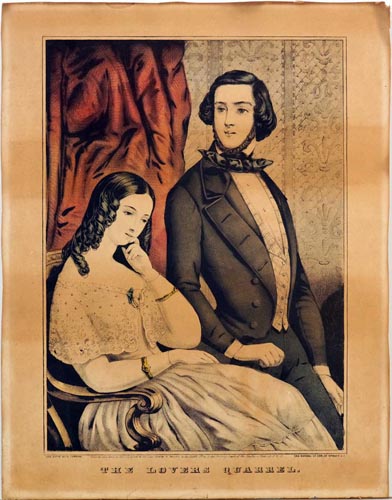FWP:
SETS == BHI; EXCLAMATION; IDIOMS
FRIEND/ENEMY: {4,3}
For discussion of the versatile idiomatic expression hī sahī , see {148,1}.
As in so many verses, the first line is opaque until we hear the second; even then, it remains incurably multivalent. Here are some possible ways the verse could be read, using the primary and more interesting meaning (1a):
=I'm not going to keep on driving myself mad over you, since you've already accepted the Other as your lover. (This is the commentators' consensus reading.)
=Why should I knock myself out to fight a losing battle? So be it: the Other loves you! (This is said sarcastically, in the course of an argument in which the speaker has been maintaining that the Other's love is false.)
=Well, I too know which side my bread is buttered on, and how to advance my own interests! Just as the Other does, when he claims that he 'loves' you!
Compared to the protean (1a), (1b) is almost self-explanatory. To me it looks strange, since apne would normally refer to the subject of the sentence. We discussed this on the Urdulist, and I thank the members of the list for their helpful arguments going both ways. S. R. Faruqi says that the lover and beloved are to be considered so closely identified that the 'own' can apply either way; although he finds this meaning less 'dramatic' of course than (1a). For further discussion of the ambiguities of apnā , see {15,12}.
In either case, the 'enemy' in the first line forms an enjoyably
balanced pair with
the 'love' in the second line; and the verse offers the well-matched set of
'we', 'one's own', and the 'Other'.

Nazm:
That is, then why would we show enmity toward ourselves by loving you, when you're convinced of the Other's love? (156)
== Nazm page 156